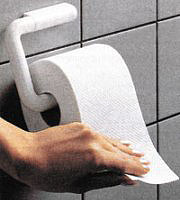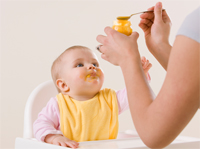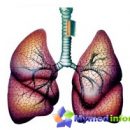What are the reasons for gastroenetritis? What viruses cause gastroenteritis? How can the use of antibiotics may affect the development of diarrhea? Read in this article.
Content
One of the manifestations of gastroenteritis is diarrhea (diarrhea). Diarrhea (diarrhea) - frequent or single intestinal emptying with the release of liquid carts. The amount of water in faeces increases, leading to the discharge of the latter. At the same time, as a rule (but not always!), the participation of defecation is also noted (more than 3 times a day).
Causes of diarrhea
The causes of diarrhea are intestinal infections (ocuses - infectious diarrhea), receiving some drugs, errors in nutrition.
Infectious diarrhea is the most common cause caused by high mortality. Its causes depend on the time of year. In the summer, bacteria prevail (in developing countries - and the simplest) - Shigella, Salmonella, Irancini, enteropathogenic intestinal wand, Campylobacter, Giardia, Amoeba; In winter, viruses (Rota and Enteroviruses) dominate. The intestinal damage in infectious diarrhea may be invasive when the pathogen is introduced with a disruption of the integrity of the mucous membrane, and non-invasive, when water is increased under the action of toxins while maintaining the integrity of the mucous membrane. Infectious diarrhea is divided into resident diarrhea (t.E. Persons permanently residing in this area) and traveler diarrhea (visitors). The frequency of the latter when traveling to Asian countries, Africa and Latin America ranges from 30 to 70%.
Viruses
Among the various variants of viral diarrhea, diarrhea of rotavirus etiology (the most common form of infectious diarrhea in children), diarrhea caused by the Norfolk virus, as well as adenine and astroviruses have the greatest clinical significance. In the clinical picture of viral diarrhea, a frequent combination of diarrhea and fever with dyspeptic disorders, and often (with rotavirus diarrhea) and with the defeat of the upper respiratory tract). The course of diarrhea of viral origin is usually favorable. The duration of the disease does not exceed, as a rule, 35 days.
Antibiotic-associated diarrhea
 Drugs leading to the development of diarrhea, are quite numerous (more than 650). Its most often causes antibiotics (antibiotic-associated diarrhea), laxatives (especially with uncontrolled admission), drugs of magnesium, iron, bile acid salts and other choleretic, NSAIDs, oral contraceptives, etc. About the diarrhea of this type should be thought when diarrhea occurs in the period from the beginning of treatment with antibiotics up to 2 months after its termination. Most often, it is caused by antibiotics of a wide spectrum, especially poorly suction in the intestines (protected and unprotected aminopenicillins, primarily ampicillin; cephalosporins, lincoosamides); Parenteral reception (in which all the necessary substances are introduced intravenously) does not exclude the possibility of developing diarrhea. In this case, there is a violation of intestine microflora. The most important etiological factor in the antibiotic-associated diarrhea is Microbe of Klostridia (Clostridium Difficile), which causes the most severe diarrhea - pseudo-membrane colitis, fortunately, occurring only in 10-30% of cases. In other cases, antibiotic-associated diarrhea can be activated as its own conditionally pathogenic flora and microbes of the genus Salmonella, Clostridium, Staphulococcus, mushrooms of the genus Candida.
Drugs leading to the development of diarrhea, are quite numerous (more than 650). Its most often causes antibiotics (antibiotic-associated diarrhea), laxatives (especially with uncontrolled admission), drugs of magnesium, iron, bile acid salts and other choleretic, NSAIDs, oral contraceptives, etc. About the diarrhea of this type should be thought when diarrhea occurs in the period from the beginning of treatment with antibiotics up to 2 months after its termination. Most often, it is caused by antibiotics of a wide spectrum, especially poorly suction in the intestines (protected and unprotected aminopenicillins, primarily ampicillin; cephalosporins, lincoosamides); Parenteral reception (in which all the necessary substances are introduced intravenously) does not exclude the possibility of developing diarrhea. In this case, there is a violation of intestine microflora. The most important etiological factor in the antibiotic-associated diarrhea is Microbe of Klostridia (Clostridium Difficile), which causes the most severe diarrhea - pseudo-membrane colitis, fortunately, occurring only in 10-30% of cases. In other cases, antibiotic-associated diarrhea can be activated as its own conditionally pathogenic flora and microbes of the genus Salmonella, Clostridium, Staphulococcus, mushrooms of the genus Candida.
Products that can lead to diarrhea are well known for most people. These are vegetables and fruits in large numbers, especially containing not only fiber, but also the so-called laxatives - plums, apricots, figs, rhubarb; Caffeine-containing drinks (intestinal secretion stimulants and motility). Citrus, crustacean meat, mollusks, raw sausages can cause diarrhea (more often in patients with allergies) due to allergic reactions that are stimulants of intestinal secretion and peristaltic.
Diarrhea may occur as a consequence of overeating, especially with pancreas diseases («banquet table») or simultaneous reception of more than 5-6 liters of fluid (most often beer), which exceeds the intestinal ability to suck.
«Stressful» diarrhea
Separate mention deserves «Stressful» diarrhea («Okops», «Medvezhya» illness), especially well-known students during the session; It is based on the enhancement of intestinal peristaltics (hypermotor diarrhea).
The usual abuse of laxative means should be suspected in cases where the cause of the protracted diarrhea remains unclear. Using phenolphthalene-containing laxatives, the feces will occur in a pale purple color. Detection of melanosis of the colon with reorganososcopy indicates chronic use of laxatives.









